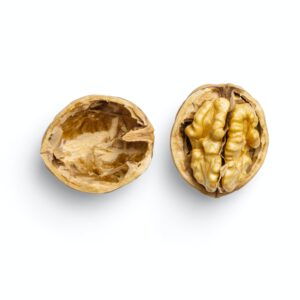
by gdadmin | Jan 15, 2024 | Uncategorized

by gdadmin | Dec 6, 2023 | Uncategorized
The holiday season is a time for joy, connection, and celebration. However, it doesn’t have to come with a hefty price tag. In this guide, we’ll explore budget-friendly ways to revel in the festivities while prioritizing wellness. From DIY gifts to affordable activities, let’s make this season about meaningful experiences without the financial stress.

1. DIY Delights: Crafting from the Heart
Unleash your creativity with thoughtful, handmade gifts. Whether it’s personalized candles, custom spa kits, or hand-knit scarves, DIY gifts add a personal touch without draining your wallet. Check out online tutorials for inspiration and let your imagination run wild.
2. Mindful Meals: Healthful and Cost-Effective
Plan your holiday meals with an emphasis on wellness and affordability. Opt for seasonal, budget-friendly ingredients to create nutritious and delicious dishes. Hosting a potluck-style gathering can also distribute costs and introduce a variety of homemade dishes.
3. Nature’s Decor: Bringing the Outdoors In
Embrace the beauty of nature by incorporating natural elements into your holiday decor. Pinecones, branches, and holly berries can be gathered inexpensively and add a touch of rustic charm to your home. Get the family involved in a nature-inspired decorating day.

Masala tea with winter spices in two glass mugs
4. Active Celebrations: Fitness-Focused Festivities
Replace expensive outings with wellness-focused activities. Organize a group hike, a community yoga session, or a friendly game of flag football. These activities not only promote physical well-being but also foster a sense of togetherness.
5. DIY Pampering: Home Spa Retreats
Who needs an expensive spa day when you can create a blissful retreat at home? DIY face masks, relaxing baths, and soothing music can turn your living room into a spa haven. Invite friends and family to join, making it a wellness celebration for all.
6. Gratitude Journals: Cultivating Positivity
Encourage the practice of gratitude by providing guests with small notebooks to jot down things they are thankful for. It’s a meaningful and budget-friendly gift that promotes mindfulness and wellness.

7. Sustainable Gift Wrapping: Eco-Friendly and Economical
Wrap your gifts in an eco-friendly and cost-effective way. Use recycled materials, old newspapers, or fabric scraps for a personalized touch. This not only saves money but also aligns with a wellness-focused, sustainable lifestyle.
8. Charity Challenges: Giving Back on a Budget
Spread the holiday spirit by organizing charitable activities. Volunteer at local shelters, organize a food drive, or participate in a charity run. It’s a fulfilling way to celebrate while making a positive impact on the community.

Celebrate Abundantly, Spend Wisely
This holiday season, prioritize wellness and connection over extravagant spending. With these budget-friendly tips, you can create memorable celebrations that resonate with the true spirit of the holidays. Celebrate abundantly, and let the joy of the season be the centerpiece of your gatherings.
Remember, it’s the experiences and connections that make the holiday season truly special. Happy and budget-friendly celebrations to you and yours!

by gdadmin | Nov 2, 2023 | Uncategorized
As the holiday season approaches, many of us eagerly anticipate the festivities, traditions, and of course, the mouthwatering holiday dishes that come with it. While indulgence is part of the fun, it’s crucial to maintain a balance and make mindful choices to ensure that you emerge from the season feeling healthier and more energized than ever. In this blog post, we’ll explore the do’s and don’ts of food consumption during the holiday season, helping you stay on track while still savoring the flavors of the season.

Do’s:
- Plan Your Meals Strategically
Planning is key to success during the holidays. Create a meal plan that includes a variety of nutrient-rich foods, such as fruits, vegetables, lean proteins, and whole grains. This not only ensures a balanced diet but also helps you avoid impulsive, less healthy choices.
- Opt for Healthy Snacks
While holiday shopping or on-the-go, keep healthy snacks on hand. Nuts, yogurt, or fresh fruits can curb your appetite and prevent you from reaching for calorie-laden, processed snacks.
- Practice Mindful Eating
Enjoy every bite by eating slowly and savoring the flavors. Mindful eating helps you recognize when you’re full, preventing overindulgence. Put your fork down between bites, engage in conversation, and focus on the experience.
- Stay Hydrated
Water is your best friend when it comes to managing your appetite. Staying hydrated can help you differentiate between thirst and hunger. Aim to drink water throughout the day to aid digestion and control your cravings.

- Portion Control is Key
With an array of tempting dishes, it’s easy to overeat. Instead of piling your plate high, use smaller dishes and utensils to control portion sizes. Sample a little of everything rather than overloading on a few items.
Don’ts:
- Say No to Mindless Munching
Holiday gatherings often feature an assortment of snacks and treats. Be mindful of snacking without thought, as it can lead to excessive calorie intake. Limit your consumption of sugary, high-fat, and processed snacks.
- Avoid Skipping Meals
Skipping meals in anticipation of a holiday feast is a common mistake. It usually results in overindulging because you’re overly hungry. Stick to regular, balanced meals throughout the day to manage your appetite.
- Limit Alcohol Intake
Alcoholic beverages are a holiday staple, but they can be calorie-dense and not particularly nutritious. If you choose to drink, do so in moderation and consider alternating with non-alcoholic options.
- Watch Out for Liquid Calories
Holiday-themed drinks like eggnog and seasonal lattes can be packed with sugar and calories. Be cautious with these liquid calories, which can add up quickly. Opt for lower-calorie or sugar-free alternatives when possible.

Masala tea with winter spices in two glass mugs
- Resist Second Helpings
As delicious as holiday dishes may be, resist the temptation to go back for seconds. You can still enjoy a variety of foods, but moderation is the key to maintaining a healthier you.
The holiday season is a time of celebration, but it shouldn’t be at the expense of your health. By following these do’s and don’ts for food consumption, you can strike a balance between savoring delightful holiday treats and maintaining a healthier lifestyle. Remember that making mindful choices and practicing moderation are essential for emerging from the holiday season feeling revitalized and ready to embrace the new year as a healthier you. Enjoy the holidays while prioritizing your well-being!

by gdadmin | Oct 4, 2023 | Uncategorized
In a world filled with constant stressors and demands, anxiety has become a widespread concern affecting millions of individuals. While therapy and medication play essential roles in managing this mental health condition, we often overlook the significant impact that diet can have on our mental health. In this blog post, we will explore the intriguing link between anxiety and diet, uncovering how the foods we consume can either fuel anxiousness or provide relief.

meditate to help manage anxiety
-
The Anxiety Culprits
To understand how diet influences anxiety, it’s essential to identify the culprits – foods that can exacerbate anxious feelings. These include:
a. Caffeine:
That morning cup of coffee might be your daily ritual, but excessive caffeine intake can increase anxiousness. It stimulates the central nervous system, leading to jitteriness and restlessness.
b. Sugar:
Sugary treats may provide a temporary mood boost, but they can also lead to blood sugar spikes and crashes, triggering mood swings and irritability.
c. Alcohol:
While a glass of wine may seem relaxing, excessive alcohol consumption disrupts sleep patterns and can contribute to anxiousness.
d. Highly Processed Foods:

avoid processed foods to prevent anxiety trigger
Processed foods often contain artificial additives and trans fats, which can affect neurotransmitters in the brain and lead to mood swings.
-
The Anxiety Busters
Now, let’s turn our attention to the heroes of this story – foods that can help reduce this health issue and promote a sense of calm. Incorporating these into your diet may work wonders:
a. Omega-3 Fatty Acids:
Found in fatty fish like salmon and walnuts, omega-3 fatty acids have been linked to reduced levels and improved mood.
b. Complex Carbohydrates:
Whole grains like brown rice, quinoa, and oats provide a steady release of energy, helping to stabilize blood sugar levels and mood.
c. Leafy Greens:
Spinach, kale, and other leafy greens are rich in magnesium, a mineral that may help alleviate symptoms.

eat nutritious food to fight anxiety
d. Probiotics:
Gut health is closely tied to mental health. Foods like yogurt and fermented foods contain probiotics that support a healthy gut microbiome.
e. Dark Chocolate:
In moderation, dark chocolate with high cocoa content can boost serotonin levels and provide a calming effect.
-
The Power of Balance
While certain foods can alleviate this condition, it’s crucial to strike a balance in your diet. Building a well-rounded meal plan that includes a variety of nutrients is key. Additionally, consider the following tips:
a. Hydration:
Dehydration can exacerbate feelings of anxiety. Ensure you’re drinking enough water throughout the day.

drink enough water to prevent anxiety
b. Mindful Eating:
Pay attention to how your body responds to different foods. Experiment with an elimination diet to identify trigger foods.
c. Consult a Professional for anxiety management:
If this mental health condition is a persistent issue, consult a registered dietitian or mental health professional to create a personalized dietary plan.
Your diet can significantly impact your anxiety levels. By being mindful of the foods you consume and making choices that support your mental well-being, you can take an active role in managing anxiety. Remember that what works for one person may not work for another, so it’s essential to listen to your body and seek professional guidance when needed. With the right approach, you can harness the power of nutrition to reduce anxiety and live a more balanced, tranquil life.

by gdadmin | Sep 11, 2023 | Uncategorized
Back-to-school anxiety is a common experience among children, and it’s perfectly normal for your child to feel a little scared about the unknown. As the summer break comes to an end, many kids start feeling the weight of worries about changes, making new friends, dealing with potential bullying, and getting used to new teachers. It’s like stepping into the unknown, and it’s okay for your child to have these feelings. The good news is that you’re not alone, and there are strategies to help ease your child’s back-to-school jitters. In this blog post, we’ll explore some effective tips to support your child during this transition and make the return to school a smoother and more enjoyable experience.

Tips to Ease Your Child’s Back-to-School Anxiety:
-
Reestablish School Routines:
To ease the transition back to school, it’s helpful to start getting children back into their school-year routines a week or two before classes begin. This can include setting a reasonable bedtime and planning out what they will wear the next day. By reestablishing these routines, your child will start to feel more prepared for the structured school day ahead.
-
Arrange Play Dates:
Studies have shown that having a familiar peer around during school transitions can significantly help children adjust both emotionally and academically. Organizing play dates with one or more friends before school begins can provide a sense of comfort and support. Encourage your child to connect with their friends and share their back-to-school feelings.
-
Visit the School:
It’s a good idea to visit the school before the start of the school year, if possible. This visit can help your child become more familiar with their new environment and reduce anxiety associated with the unknown. Spend some quality time on the playground, explore inside the classroom (if accessible), and even rehearse the drop-off procedure. Additionally, practice walking into the classroom with your child, allowing them to get comfortable with the idea.
-
Validate Their Feelings:
It’s important to acknowledge and validate your child’s worries about starting school. Let them know that it’s entirely normal to feel apprehensive about new activities, new teachers, and new classmates. Emphasize that these feelings will become more manageable and enjoyable once they start school. Share stories from your own school experiences to demonstrate that anxiety is a common part of the back-to-school process.
-
Lead by Example:
Children often take cues from their parents’ behavior. As a parent, it’s crucial to remain calm and confident during this time. Display your own positivity and excitement about the upcoming school year. Your confidence will help reassure your child that they can handle the challenges that come their way. Be a source of strength and support for them.
Back-to-school anxiety is a natural part of the growing-up process, and as a parent, you play a significant role in helping your child navigate this transition. By reestablishing routines, arranging play dates, visiting the school, validating their feelings, and leading by example, you can help ease your child’s anxieties and make the return to school a more positive and enjoyable experience. Remember, your child isn’t alone in these feelings, and together, you and your child can conquer back-to-school anxiety and embark on a successful school year.





















